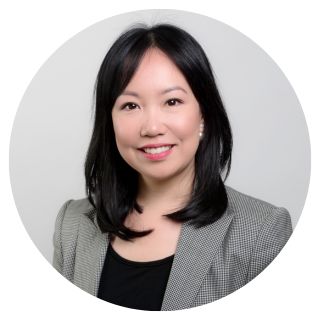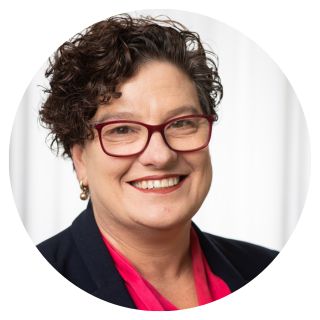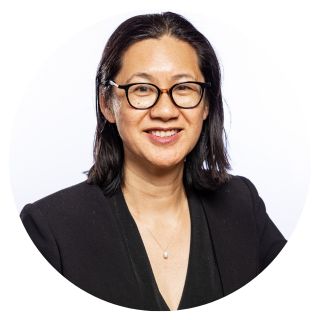A series by
Alice Tang
Chief Operating Officer, MA Asset Management
In the last article of our Invest in Yourself series, we feature four amazing fund managers who make investment decisions across a range of asset classes and investment strategies. Let’s deep dive into how they make investments and how they invest in themselves.
Karen Chan, Portfolio Manager, Perennial Partners
Tell us about the strategy that you currently manage.
I comanage the Perennial Private to Public Opportunities Funds (PPP) strategy as well as the Perennial Private Ventures Fund (PPV) for the Perennial Private Investments boutique. PPP is focused on a cross-section of private growth, pre-IPO, and listed investments, whereas PPV is entirely focused on private companies at different stages of growth. The part of the market I play in is difficult for investors to access because private opportunities are not widely available, versus listed, which is available to the ordinary investor. Also, even if you have access, deal flow can be highly proprietary, and there are many data points and intel that are not publicly available, so there is not only an art but also a science to my field. Also, in private markets there is also expertise required in structuring deals to protect the downside while enjoying the full upside.
Reflecting on the past two articles, how else do you think women should invest in themselves?
Outside of hard work, which is a given, I think women should invest in their networks, which are powerful assets to have as their careers develop. I believe in paying it forward and helping without an agenda because I have also benefited in my career from acts of kindness from people in my network.
What advice would you give to our members on investments?
I would encourage members to have conviction, to “take a view,” and to know that bottom-up research is important to formulate and confirm both conviction and an investment view. Also, you learn a lot from investments that go bad as well, so it is about the ups and the downs.
What is the biggest investment mistake you have made?
I would say perhaps the biggest mistake is having a set view that has not evolved quickly enough to keep current with new and changing information. In the private markets, I am constantly thinking about whether our conviction remains and also with new information, how to make sure the feedback loop gets to our portfolios quickly so our companies can incorporate that new information into their operations or strategy and also pivot if required.
What is the best advice on investing or the best general life advice you have ever received?
I think the best advice I have received is to be “comfortable with the uncomfortable” because this is where we can learn the most.
Cathy Houston, Managing Director, Real Estate Credit, MA Financial
Tell us about yourself: Why were you interested in investing, and what are your goals in investing?
I’ve always been very risk-averse, and I love analyzing downside risks and trying to consider all the things that can go wrong. So I’m much more suited to credit investments than equity. I have worked in real estate finance for around 30 years, focusing on secured/mortgage lending. I have worked through cycles, and this is an asset class that performs well through all cycles. My goal is to provide great returns for investors with no losses.
Tell us about the strategy that you currently manage.
I manage a real estate strategy and a high yield credit strategy. Both strategies focus on capital preservations and a lot of downside risk analysis are undertaken. With the high yield strategy, the focus is not on high-risk investments. With the real estate credit strategy, we invest in bilateral first mortgage loans, with mix of construction loans, bridging loans residual stock loans.
What is the biggest investment mistake you have made?
There are times when I allow my risk-averse nature to stop me from making investments. There is no return without some risk.
In today’s turbulent times, what have you done with your own investments and financial affairs?
I’ve just bought a new home in an area that I can see myself enjoying for a very long time. It has great views, good access to transportation, and enough room for all my stuff. I have run my budget and stressed it for increasing interest rates, and I’m comfortable with the leverage I have. I don’t have investments in the funds I manage because I don’t want to have any conflicts. I sincerely believe that the funds I manage offer great returns for the risk.
Julia Weng, Portfolio Manager/Analyst, Paradice
Tell us about the strategy that you currently manage.
I help manage the Paradice Australian Equities strategy. We invest in a concentrated portfolio of listed Australian shares benchmarked against the ASX200. A key crux of our investment philosophy is to find under-valued companies at inflection points, whether it be improving earnings or cash flow, and where management’s incentives are aligned with those of shareholders.
Reflecting on the past two articles, how else do you think women should invest in themselves?
Be persistent and don’t give up the good fight. Voice your perspective, and be a strong advocate for yourself and other team members. If you want to go fast, go alone. If you want to go far, go together. Invest in time getting to know people outside your immediate team—it will broaden your perspective about your role and how you can add value beyond your immediate job. Women also tend to be humble and keep achievements under wrap. It is important that others are aware of your strengths and career goals so that you are top of mind for upcoming opportunities.
What is the biggest investment mistake you have made?
Hanging onto a winner for too long. Being objective is a key plank of good investing. I have, at times, celebrated investment wins, and as I start dreaming about the free holiday I’ve just earned (in theory), I’ve talked myself into hanging on for a bit longer and convincing myself the investment thesis has more to run. It is important to remain objective and disciplined!
What is the best advice that you would give to yourself in your 20s?
In your 20s, you can afford to take risks and try different roles, whether it be relocating overseas, changing industries/careers, or starting a business. I purchased and ran bakeries for a couple of years in my 20s, and it was one of the most fulfilling experiences in my investment journey. I reworked the entire product range to better reflect consumers’ changing appetites, built more flexibility into our team’s working style to overcome staffing challenges, overhauled our wholesale business with a focus on driving profitability, and reinvested in baking equipment and marketing to grow catering and retail. Investment is not only about crunching numbers on a piece of paper but also about understanding the fundamental drivers and practicalities of how a business operates.
Michelle Wigglesworth, Senior Equities Analyst, Australian Ethical
Tell us about the strategy that you currently manage.
I recently joined Australian Ethical, which is an organization founded in 1986 that made ethics the starting point for all investments. We are unique in that we have a dedicated ethics team that forms the gateway to our investments.
Any investment has been approved by the ethics team to form part of our strategies with strict adherence to the Australian Ethical Charter.
I am a senior equities analyst for the three domestic equities-managed funds—the Emerging Companies Fund, the Australian Share Fund, and the High Conviction Fund. These strategies are generally differentiated by the market capitalization of the investments. They are all actively managed, and stocks are chosen on the basis of relative value where we deem the risks are being adequately priced.
Reflecting on the past two articles, how else do you think women should invest in themselves?
Your work-based identity and your financial future are absolutely two foundational areas to invest in.
The next thing I’d recommend is to pursue a hobby outside of work.
This may seem counterintuitive as an investment, given it will detract from time devoted to your career or finances. However, time spent on recreation and enjoyment can serve as a circuit breaker for those times when work may be stressful, and it can actually make you more productive.
One of my hobbies is public speaking, which really started as an investment in my career because I didn’t like speaking in front of people.
I’ve now started an investment in golf, which I played for over 17 years ago prior to having children. It may eventually serve as an investment in networking, but now that I’m back to novice status it is definitely a hobby.
If there is one thing you would change about the funds management industry, what would it be?
More meet and greets with investors to understand that absolute returns matter and to see the customers you are serving.
View the previous article in the series.
You can connect with Alice Tang via LinkedIn: linkedin.com/in/alicetang1





